AeroPress vs Chemex: Which brews a better coffee?
I put the two premium brands to the test.
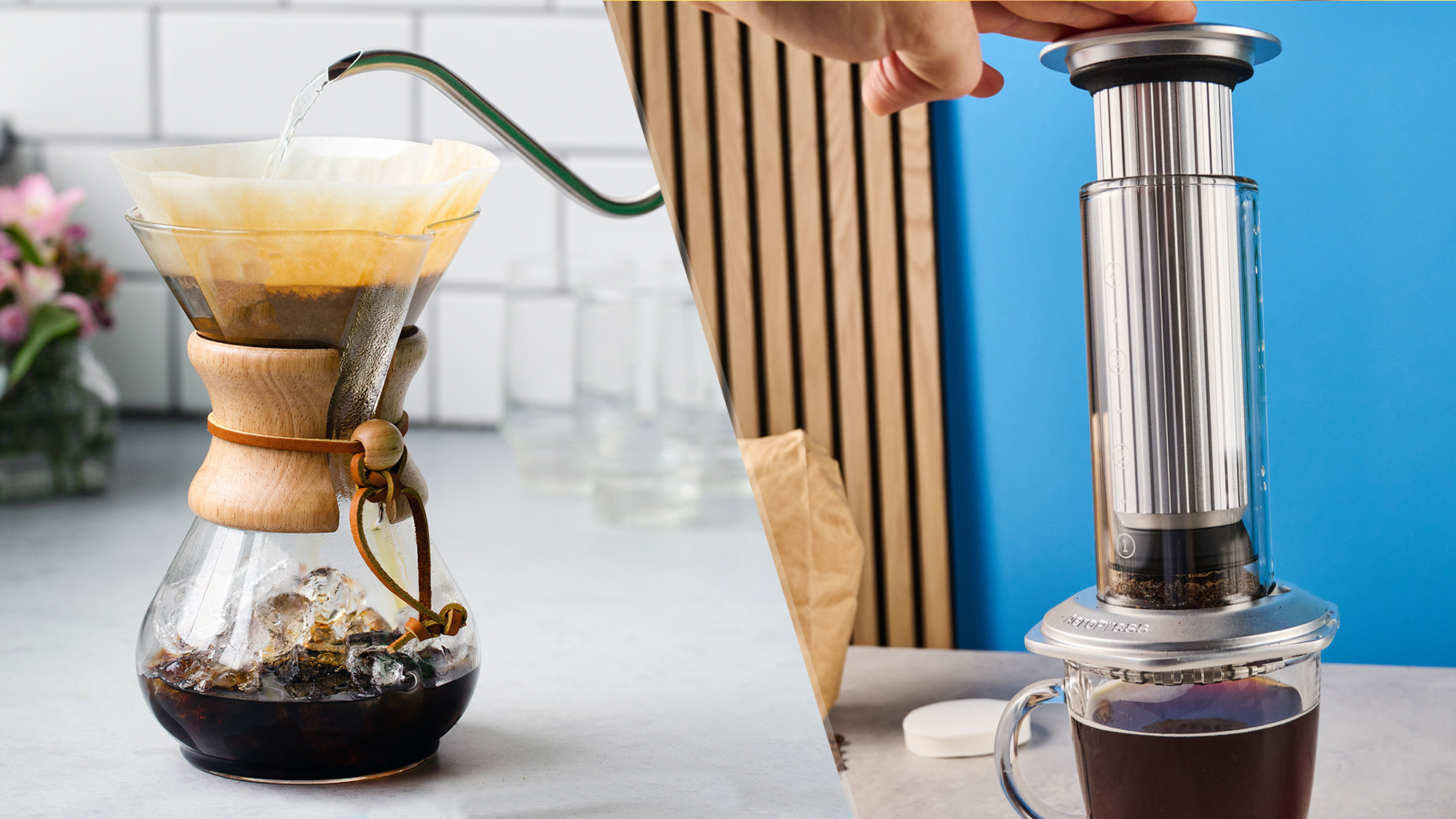
If you’re even a little bit into coffee, you will have heard of either AeroPress or Chemex. Both the AeroPress and the Chemex are easily some of the best coffee makers available today. I wouldn’t say I’m a coffee snob, but I do enjoy a good cup of java every now and then. Alright, every day. So? Some experts are claiming coffee is actually good for you now, and I’m choosing to believe them.
So with that in mind, I’ve recently taken it upon myself to drink as much coffee as humanly possible. Mostly because I’ve been testing a slew of coffee machines as part of my job as a reviews writer here at Tom’s Guide — AeroPress and Chemex included. But which one’s better? Which truly makes the best coffee? Is it the cool, synonymous-with-fancy AeroPress with its patented vacuum brewing technology, or Chemex’s hipster-coded hourglass glass-wood-leather style?
Both have their perks, both have their grievances. Does one of them brew a smoother coffee? Does the other make for an easier cleanup? In this AeroPress vs Chemex face-off, I’ll break down the pros and the cons of both famous coffee makers, including price, design, performance, ease of use, and cleaning. Who will be crowned the ultimate coffee champion?
| Row 0 - Cell 0 | Chemex | AeroPress |
| Price | $49-$161 | $39-$149 |
| Capacity | 3 cup-13 cup | 10oz, 20oz (XL) |
| Coffee grind | Medium-coarse | Medium-fine |
| Time required | Under 3 minutes | Under 2 minutes |
| Materials | Glass, wood, rawhide | Glass, metal, plastic |
| Dishwasher safe | Yes | Yes (except Premium) |
| Included accessories | None | AeroPress scoop, AeroPress stirrer, AeroPress filters |
AeroPress vs Chemex: Price & availability
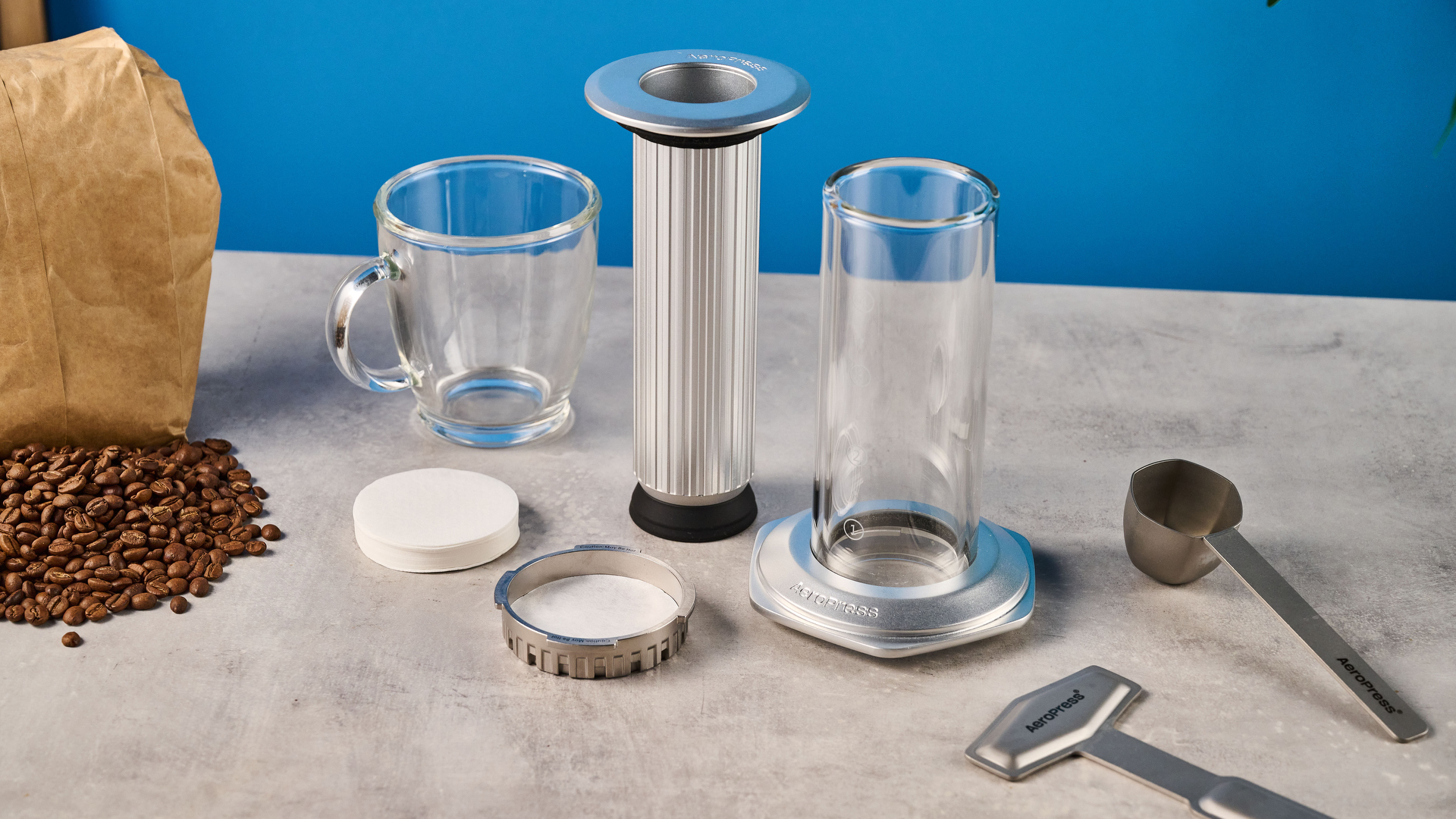
The AeroPress comes in a range of styles: the least expensive is the Original, $39 at Amazon, and the priciest is the $149 Premium, which you can pre-order directly from AeroPress. Chemex has a similar range: the cheapest Chemex is the Pour-Over Glass Coffeemaker, $47 at Amazon (MSRP $49), and the most expensive is the Handblown Thirteen Cup Coffeemaker, $153 at Amazon (MSRP $161). In my opinion, the cheapest versions of both the AeroPress and the Chemex work just as well as their luxury counterparts — so I’d save your bucks with these and get the most affordable option.
AeroPress vs Chemex: Design
Both the AeroPress and Chemex are known for their looks. Like sought-after models gracing global runways, these coffee makers are the coolest in the barista world. Honestly? I have no notes.
Unlike moka pots and french presses, which tend to be a chore to clean and use, both the AeroPress and Chemex make brewing coffee easy as pie. I love the AeroPress’ simplistic beauty, the design-forward nature of its chamber-and-filter makeup. The filter attachment is easy to screw in and out, and after brewing, you simply push down on the plunger to ‘pop’ out your coffee grounds. While I love looking at the AeroPress Premium more than the AeroPress Original, the Original still has its merits in its simple and effective design.
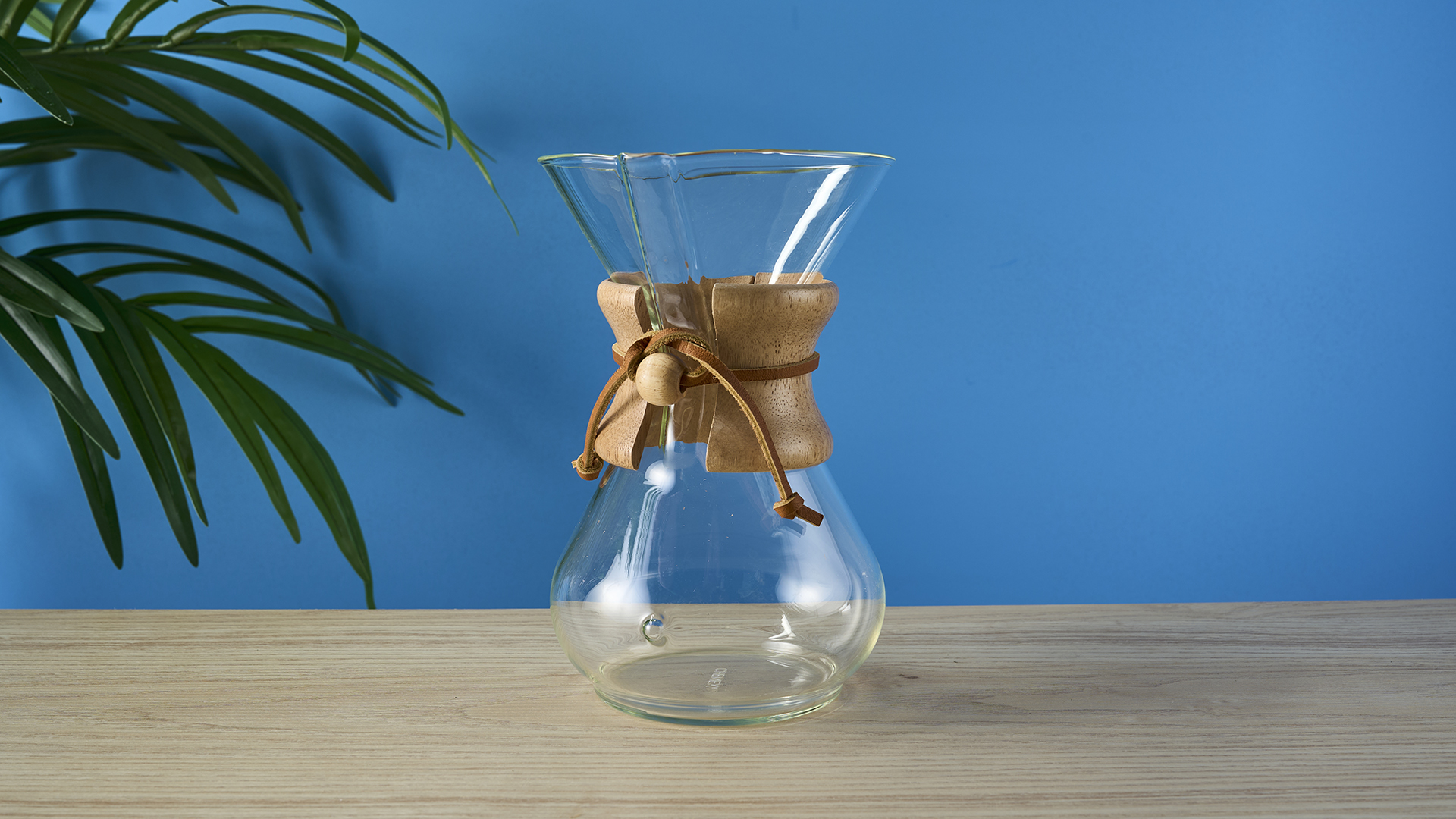
With the Chemex, it’s perhaps even more beautiful. The borosilicate glass exterior, wooden collar, and rawhide tie are gorgeous and effective. The wooden collar means you can pick up the Chemex, even when it’s full of boiling water, and the rustic rawhide tie means you can remove the collar for cleaning.
If you like your coffee makers with style and substance, you’ll get on with both the AeroPress and the Chemex.
Get instant access to breaking news, the hottest reviews, great deals and helpful tips.
AeroPress vs Chemex: Performance & ease of use
While both the AeroPress and the Chemex brew a similar coffee, there are a few marked differences you should be aware of before you make your decision.
The Chemex perhaps has a softer learning curve, but that doesn’t mean the AeroPress is difficult to use. Let me walk you through the brewing process for both the AeroPress and the Chemex.
An AeroPress requires medium-fine ground coffee — a 3 on my coffee grinder, the Eureka Mignon Specialita. You can adapt your ratio to suit your taste, but I found the best ratio was 1 scoop (AeroPress-branded) of coffee with the full 10 ounces of water. This brewed a light, airy, aromatic coffee, without bitterness or silt you’d expect with a french press or moka pot.
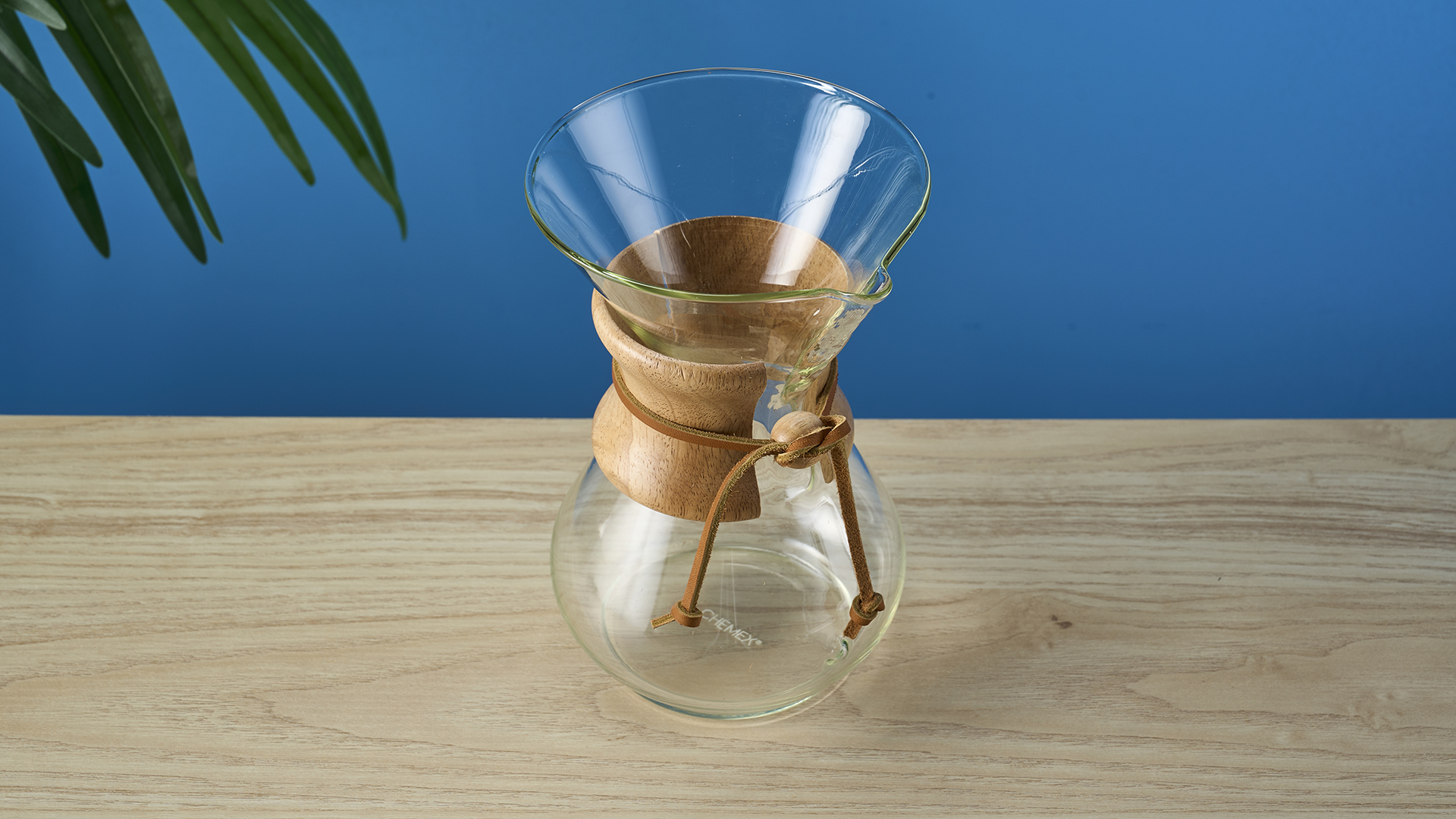
The reason I say the AeroPress has a little learning curve is because of how rapidly you have to do each step. You have to pour the water, stir the coffee, and use the plunger to create a vacuum in as little time as possible. I’m down to about three seconds now — but that took practice. You can also make cold brew in the AeroPress, but you’ll need cold water (obviously) and to stir the coffee for one minute before creating the vacuum.
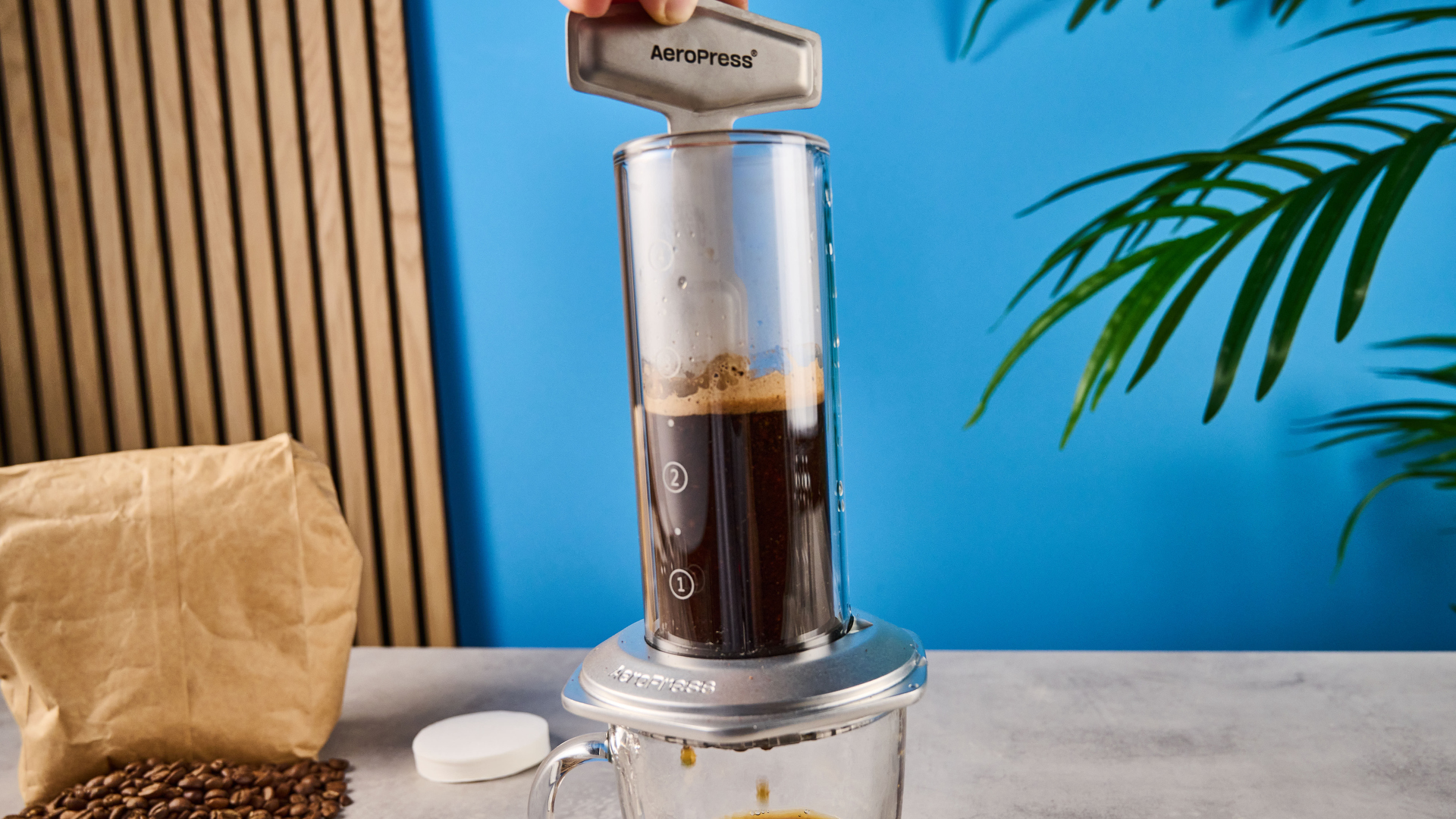
While the AeroPress has the ever-so-slightest learning curve, anyone can pick up a Chemex and boss it, first go. You set up the Chemex by placing the filter (that you need to purchase separately) in the top and preparing your coffee-water ratio. Chemex recommends one tablespoon of coffee to every 5 fluid ounces of water. So for one cup of coffee, I would use two tablespoons of coffee and 10 ounces of water. Once you’ve set that up, you place your coffee in the filter and pour a little water on the surface to create a ‘bloom’. Once the coffee’s gas has released, pour the rest of the water in circular motions to brew the coffee. Wait until the coffee stops dripping and you’re done. If you’re a tea drinker, too, you can brew tea in the Chemex using the same method — and cold brew.
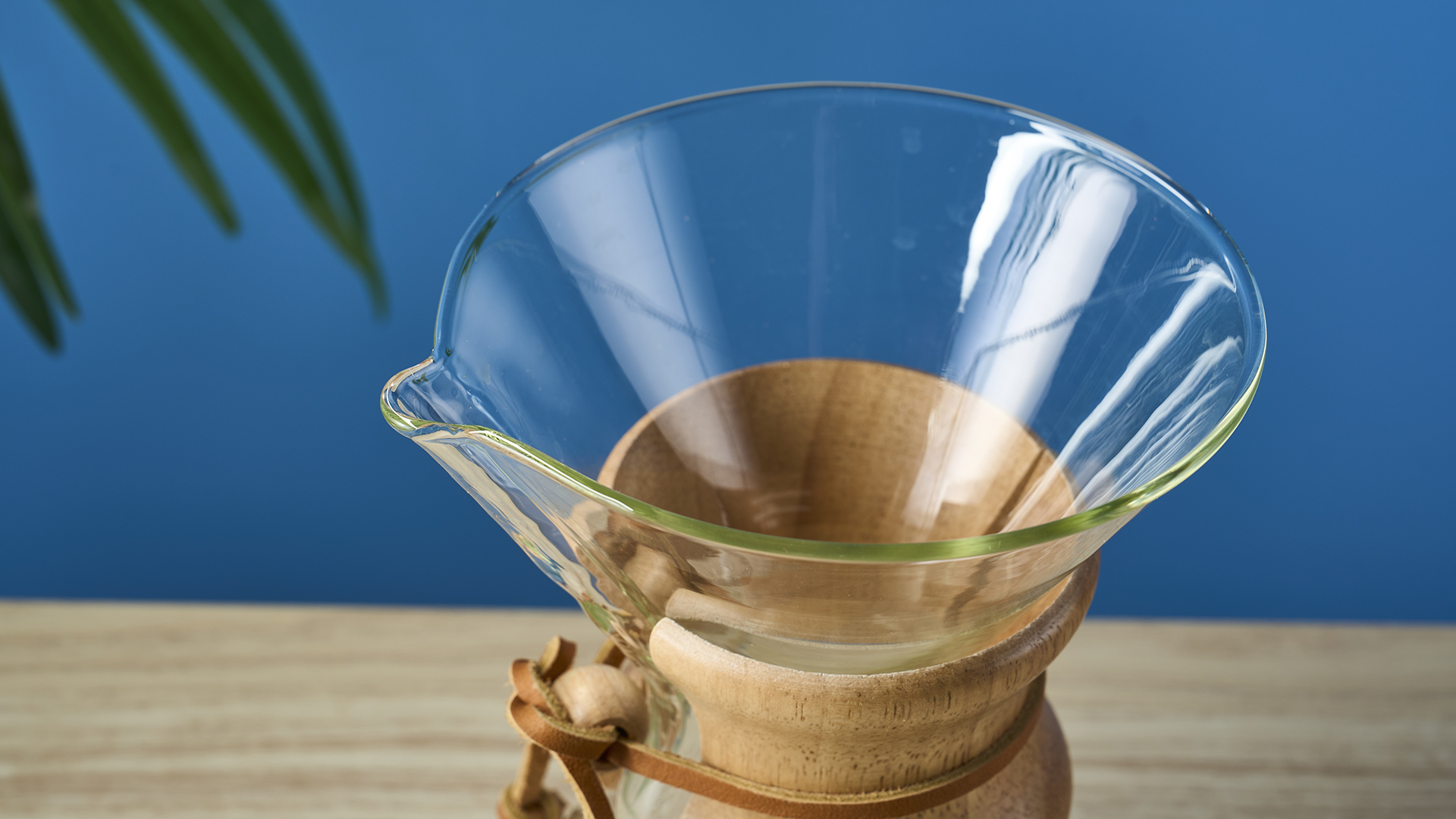
With regards to flavor, I think the AeroPress wins by the tiniest margin. I do love the Chemex’s light, sweet, balanced flavor profile, but the AeroPress has an elevated taste. The brew is soft and airy like a coffee-flavored cloud, but doesn’t lack the depth and strength you might expect from a gentle roast. The coffee truly matures on your tongue. I think AeroPress is now my favorite non-espresso way to brew coffee.
AeroPress vs Chemex: Storage & maintenance
While both the AeroPress and the Chemex are easy to maintain, there’s a clear winner here. With the AeroPress, you have to ‘pop’ out your coffee grounds using the plunger. If you’ve got the Original AeroPress, you can put it in the dishwasher, but if you’ve got the Premium, it can only be handwashed. Occasionally, a few coffee grounds get stuck in the chamber, so you have to rinse it before putting it in the dishwasher.
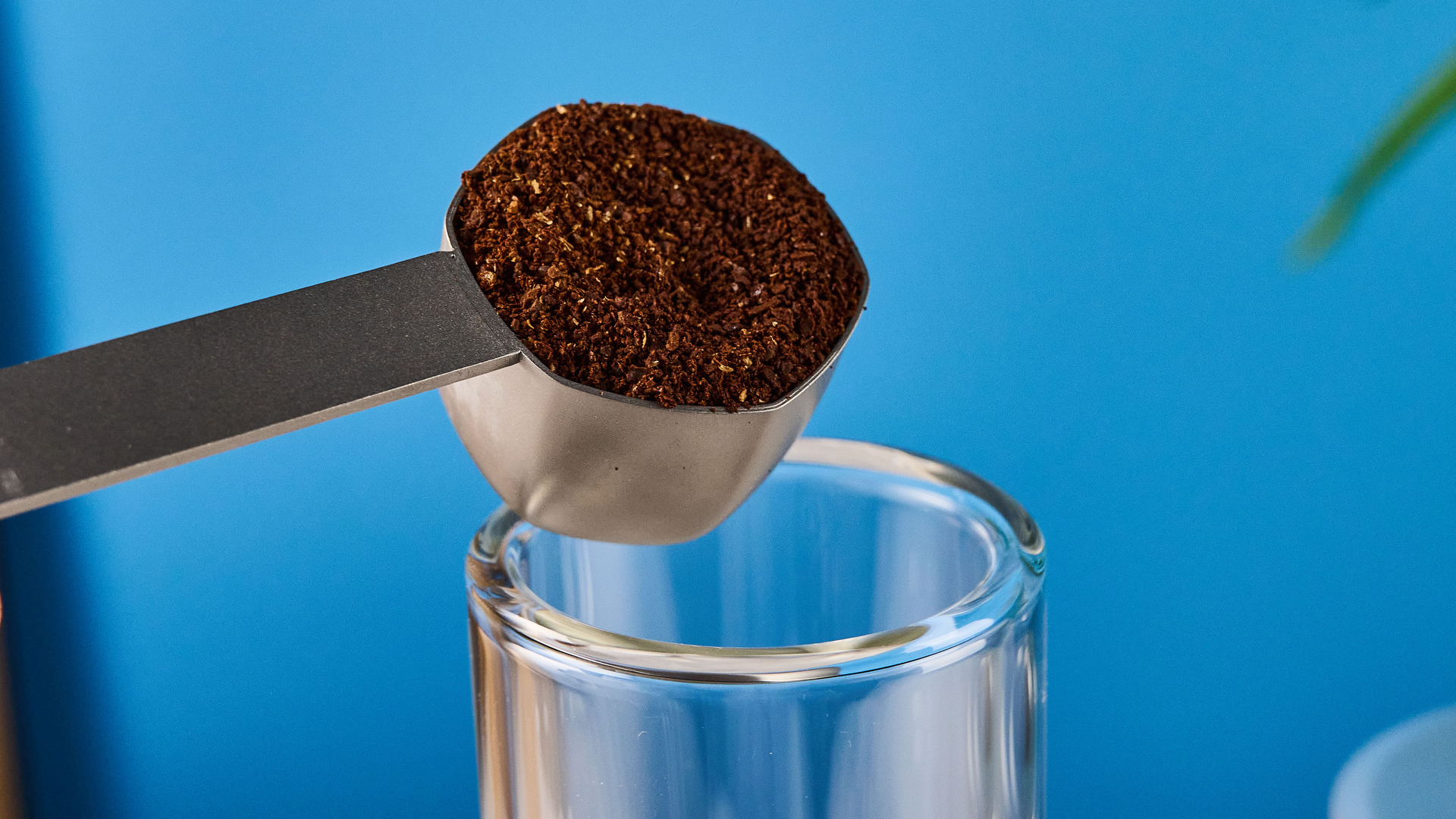
On the other hand, the Chemex is so easy to clean. With the Chemex Bonded filters, you simply pluck the filter from the funnel and trash/compost it, all coffee grounds included. Then, all you need to do is rinse the Chemex with hot water, and you’re good to go again. Because you can clean the entire Chemex without touching coffee grounds at all, I have to say the Chemex wins here.
Don’t get me wrong, the AeroPress is still easy to clean — but the Chemex is so easy to clean.
AeroPress vs Chemex: Verdict
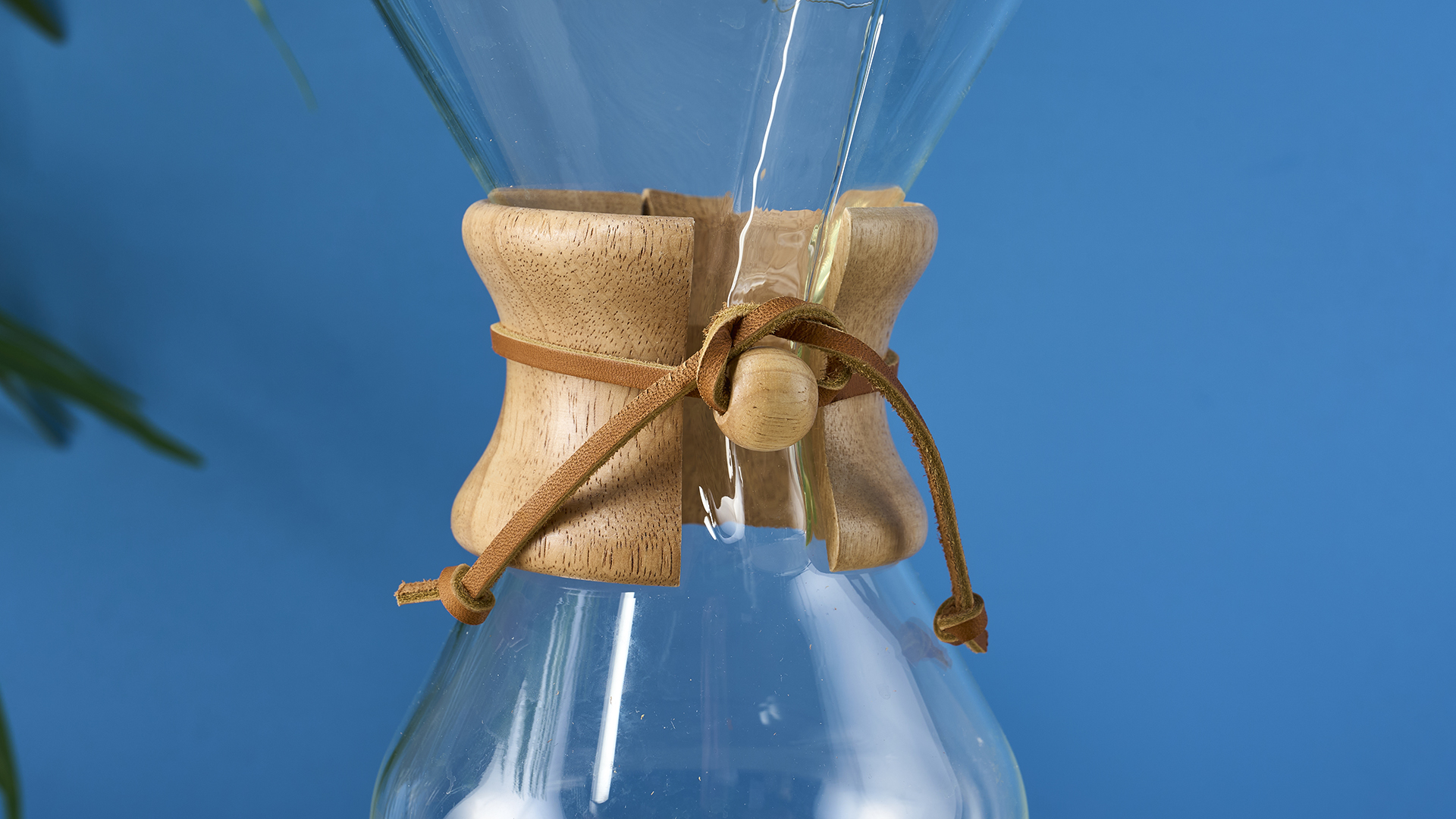
The winner for me is the AeroPress, just based on how deliciously creamy, yet light, yet layered and intense its coffee is. It’s a little inconvenient to master the pour-stir-seal action in less than five seconds, but in all honesty, that’s part of the fun. Once I got that down pat, I felt indestructible, like I could rule the world.
I personally love having such a versatile coffee maker to play around with — but that doesn’t mean the Chemex is bad. I still love my Chemex. It’s easier to use and clean, but the flavor of the coffee isn’t as mature as the AeroPress’. I think every coffee lover should have both – the only question is, which one will you get first?

Erin Bashford is a senior writer at Tom's Guide, focusing on reviews. She has a Masters in Broadcast and Digital Journalism from the University of East Anglia. As an ex-barista, she knows her way around a coffee machine, and as a music lover, she's constantly chipping away at her dream of having a multi-room home sound system. In her spare time you can find her reading, practising yoga, writing, or stressing over today’s NYT Games.
 Club Benefits
Club Benefits





